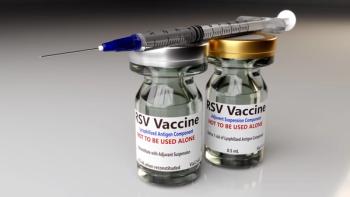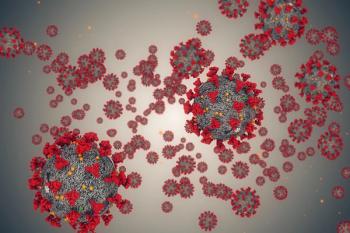
Past Management of Chronic Fibrosing ILD
Transcript
Neil B. Minkoff, MD: Dr Oldham, there are quite a few therapies that were used before we came to specific approved treatments for fibrosing ILD [interstitial lung disease] with progressive phenotype. There were steroids, immunosuppressant drugs, and so on. Could you talk a little bit about what you’ve used, and if you find them effective?
Justin Michael Oldham, MD, MS: Yes. It’s important to start a little upstream and acknowledge that not all ILDs are going to respond the same. For instance, prednisone and immunosuppression were used for a long time for patients with IPF [idiopathic pulmonary fibrosis], based on some retrospective data suggesting that they might be effective. In a clinical trial out of Europe, which suggested the same, when the same trial was done here in the United States, it turns out that combination therapy with prednisone, azathioprine, and N-acetylcysteine, was actually hurting patients with IPF.
Something that was considered close to standard of care for a long time turned out to be harmful for these patients. Now, that exact same regimen, maybe without the N-acetylcysteine, but at least with prednisone and immunosuppression, can be quite effective for patients with autoimmune-associated ILD, especially those with a more inflammatory type pattern, like Sonye sees quite often with her myositis patients. Similarly, patients with earlier hypersensitivity pneumonitis, they tend to have a lot of inflammatory changes. And some of the retrospective studies that have been done suggest that lung function will stabilize in those patients when treated with immunosuppression. It is important to get the classification right on the ILD, even though we have nintedanib for this progressive phenotype.
If you don’t correctly classify IPF, versus non-IPF, versus autoimmune, you may not reach for the right therapy initially. That’s one class of medications, immunosuppression, as I mentioned N-acetylcysteine was another class commonly used in idiopathic pulmonary fibrosis. That was not shown to be effective when compared to placebo in a randomized controlled trial. There is some suggestion that there may be some genetically susceptible subgroups, one in particular that may respond favorably to N-acetylcysteine. That is being studied in a clinical trial. But as for now, none of these therapies are used in IPF. Immunosuppression has a solid role in inflammatory ILDs, and N-acetylcysteine doesn’t really have a role in any ILDs at this point.
Newsletter
Stay ahead of policy, cost, and value—subscribe to AJMC for expert insights at the intersection of clinical care and health economics.









